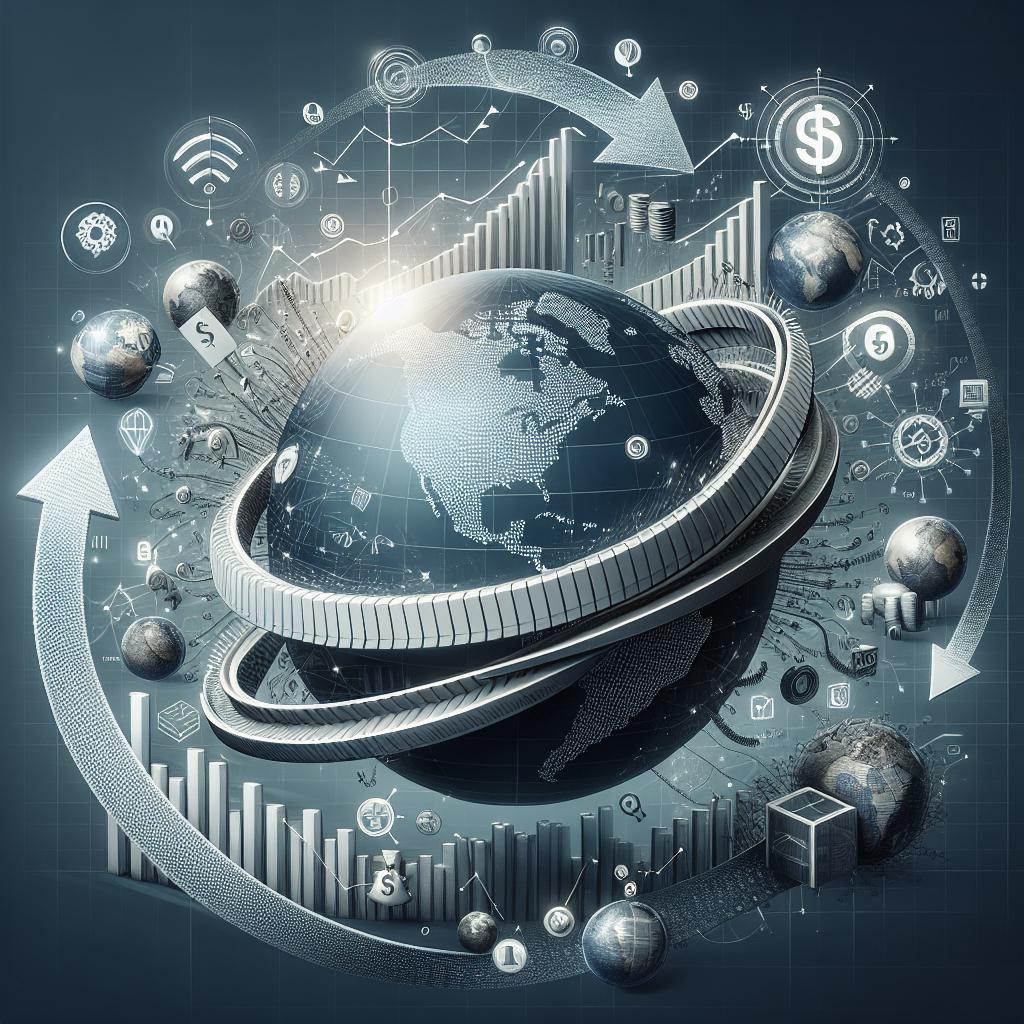Economic Resilience in Crises
In an ever-evolving global landscape, uninterrupted economic growth is a distant dream for many nations. Economic resilience becomes crucial as economies face new challenges, from technological advancements to climate change. This blog post delves into the ability of EU economies to adapt and thrive amidst these changes. It provides insights into guiding these economies to withstand external shocks and crises, all while spotlighting key projects and individuals driving this transformative journey. Furthermore, we discuss the partners and teams contributing to these efforts, alongside perspectives from subject matter experts. Finally, we share information on how you can engage and connect with project leaders.
Assessing the Ability of EU Economies to Thrive in Times of Change
European Union economies have historically shown strength in diversity, leveraging a shared market while respecting individual economic identities. This unique balance becomes crucial when assessing their ability to thrive in dynamic global conditions marked by rapid technological innovations and geopolitical shifts. By understanding past responses to crises, we can glean insights into EU’s adaptability, marked by policy flexibility, a holistic focus on labor markets, and diversified sources of growth.
Several economic indices now point towards an EU-wide resilience mechanism, integrating digitalization and green economy transitions into the growth models. This adaptability is not uniform, showing variance in responses from Mediterranean to Nordic countries. Despite these differences, common strategies emphasizing innovation, sustainability, and skills development are becoming central themes, enabling a robust framework for enduring economic dynamics.
Guiding Our Economies to Become Resilient to External Shocks and Crises
Establishing deep-rooted economic resilience against external shocks and crises involves proactive planning and policy implementation. A dual focus on fostering innovation and ensuring sustainable development has emerged as a key approach in this endeavor. Implementing economic diversity strategies and strengthening digital infrastructure play a pivotal role in cushioning the impacts of unanticipated socio-economic shifts.
Institutions are now focusing on building shock absorbers into financial systems, as witnessed during recent economic downturns. Enhanced international cooperation, coupled with effective policy frameworks, ensures rapid recovery potential. Additionally, developing a responsive workforce through continued education and vocational training empowers economies to better navigate storms, enhancing both long-term growth and resilience sustainment.
Project Partner
Collaboration with project partners is an essential component in strengthening economic resilience. These partnerships often bring together governmental agencies, private sectors, and non-profit organizations to leverage collective resources and expertise. Within the EU framework, project partners play critical roles in aligning national and regional policies with broader EU objectives, enhancing the overall impact of resilience-building initiatives.
High-impact partnerships are vital in fostering innovation, implementing sustainable practices, and integrating technology solutions into economic resilience plans. These collaborations are instrumental in ensuring diverse perspectives and resources are applied towards common goals, maximizing the potential for successful, resilient outcomes across EU countries.
Principal
The principals or leaders of economic resilience projects hold the responsibility of steering efforts to ensure the desired objectives are attained. As central figures, they drive strategic planning, ensuring that all activities align with long-term goals. Their leadership is vital in managing resources, setting priorities, and coordinating across different levels of governance.
Furthermore, principals act as the liaison between project stakeholders, facilitating communication and engagement. They must demonstrate both visionary thinking and pragmatic action, playing a crucial role in adapting strategies to meet unforeseen challenges, effectively becoming the guardians of economic fortitude in the face of crises.
Project Team
The effectiveness of a project team is quintessential to the success of economic resilience endeavors. Comprising experts in various fields such as economics, technology, and environmental science, these teams are the backbone that executes strategies effectively on the ground. A diverse and skilled project team can pivot swiftly in response to challenges, ensuring adaptive and innovative solutions.
Each member of the project team brings a unique perspective, further enriching the approach to building economic resilience. Through interdisciplinary collaboration, team members work together to craft policies, develop technologies, and design programs that are both flexible and robust, ensuring sustained growth and stability over time.
ZOE Authors
ZOE, a prominent think tank focusing on sustainable economy and resilience, contributes critical thought leadership and expertise to economic resilience projects across the EU. Their authors, featuring a diverse team of scholars and practitioners, play a pivotal role in providing evidence-based insights and recommendations for policy development.
The research and analysis conducted by ZOE authors offer a holistic understanding of the multifaceted challenges facing EU economies. By publishing findings and engaging with policymakers, ZOE authors are instrumental in fostering informed decision-making processes, ultimately facilitating stronger, more resilient economic environments.
Contact
Engagement and collaboration are crucial for advancing economic resilience. To be part of this transformative journey, stakeholders, researchers, and the general public are encouraged to connect with key project leaders and experts. Establishing contact facilitates knowledge-sharing and expands networks, contributing to the collective resilience-building endeavor.
If you are interested in more detailed information about ongoing projects, partnerships, or research opportunities, please reach out through the contact information provided by partner organizations and project principals. Engaging with these initiatives not only enriches your understanding but also contributes to shaping resilient economic futures.
Summary of Main Points
| Section | Main Ideas |
|---|---|
| Assessing the Ability of EU Economies to Thrive in Times of Change | Highlights the adaptability of EU economies through policy flexibility and innovation, essential for thriving in global dynamics. |
| Guiding Our Economies to Become Resilient to External Shocks and Crises | Focuses on proactive planning for economic resilience, emphasizing innovation and sustainability as key approaches. |
| Project Partner | Explains the role of collaborative partnerships in aligning policies and resources towards resilience-building initiatives. |
| Principal | Describes the leadership roles in managing resources and priorities to achieve successful economic resilience projects. |
| Project Team | Highlights the importance of diverse, skilled teams in executing resilience strategies effectively through interdisciplinary collaboration. |
| ZOE Authors | Discusses the contribution of ZOE think tank authors, providing insights and recommendations for policy development. |
| Contact | Encourages engagement and networking for advancing economic resilience through collaboration and knowledge-sharing. |


